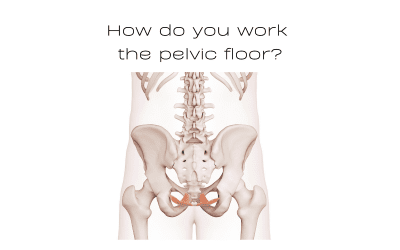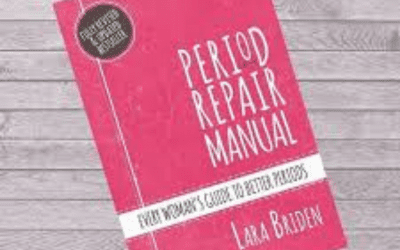Blog

Can a Physiotherapist Help with Pelvic Organ Prolapse?
“Can a physiotherapist help with pelvic organ prolapse? The simple answer is yes.” Physiotherapy is one of the most effective non-surgical treatments, recommended worldwide as a first-line approach. This guide will show how pelvic floor physiotherapy can support and...
Latest Blog
Here you will find articles written by our physios covering pelvic health issues and concerns. These are updated regularly – if you are a patient of ours you can opt into receiving our blog posts right into your inbox when a new one goes live!
Articles include everything from general lifestyle advice to what we can treat and what treatment options are available for different conditions. For more personalised, comprehensive care and treatment advice that is tailored to you and your pelvic health needs, make an appointment with one of our highly skilled and passionate physiotherapists.
Questions?
What to expect at your first appointment
Most people are not quite sure what to expect from their first pelvic health physio appointment, and it's normal to feel a bit nervous before you come in. You may have been referred by your doctor, a friend may have told you about us, or you may have found us on...
Returning to running after baby
We have the latest evidence on returning to running postnatally! Fresh off the press - a clinical commentary from a collaboration of different international experts who have reviewed the available research and formulated a comprehensive framework. Some important...
Active and POP!
Active women dealing with pelvic organ prolapse (POP) This blog is from a guest writer - Anja Morris. Thank you Anja for sharing your story...... You might tell a friend over a cup of coffee that you’ve got a sore back, but “Guess what happened, my...
Our Covid-19 treatment policy
The health of our team and of all our clients is of the utmost importance to us. We have a number of higher risk people who come to our clinic on a daily basis for treatment. This includes pregnant women, young babies, toddlers and children, and people who are...
Returning to exercise with confidence
Getting back into exercise after having a baby can be daunting. There are so many changes that happen to your body after pregnancy and delivery - (be it Vaginal or Caesarean) Getting a thorough check up can help you feel empowered to get back into it! 1. Pelvic floor...
We have moved premises!
We have moved! On 2nd August we opened up in our new premises. We will now have more room and the ability to see patients sooner, with more options for appointment times. During lockdown we are doing all our appointments online. For more information on how online...
Take control of your pelvic health!
What are you doing this year to ensure you look after your pelvic floor and help prevent future problems? The pelvic floor muscles are in an awkward place – you can’t see them and they often get forgotten about! But they are a very important group of muscles and when...
How to strengthen the pelvic floor
Good pelvic floor muscle function is important - but how do you use these muscles? And how do you know if you are doing it correctly? How to contract the pelvic floor: You can do the exercises lying, sitting or standing. When you first start it’s easier to do them...
Prostate cancer – signs, symptoms, risk factors
Prostate cancer is the most common cancer in men. Globally more than 1.3 million men are diagnosed every year, including around 3,400 in New Zealand. Many men start to have problems with their prostate as they get older, and bladder problems are common. This is mostly...
Risk factors for pelvic floor injuries during childbirth – what can be done to help stop symptoms developing later in life?
Pelvic floor problems are common in women, and one of the main risk factors is vaginal delivery. There is a growing awareness of the damage that can occur to the pelvic floor muscles and the perineum (the skin between the vagina and the anus) during a vaginal birth....
Pelvic floor injuries during childbirth
For many people, childbirth is a wonderful experience. Everything goes well, and there are no issues. However there are some who experience trauma to the pelvic floor muscles, sustained during vaginal delivery. How many does this affect? We know that around 90% of...
Period Repair Manual – Lara Briden
Book review, by Stephanie Jones. I really enjoyed this informative book by experienced Naturopathic Doctor, Lara Briden. Lara runs a clinic in Sydney, Australia. She treats women with PCOS, PMS and endometriosis, women suffering from pelvic pain, and women with a...
Liz Childs talks about the pelvic floor
Continence Awareness Week 15-21 June 2020. In recognition of this we have made a video for Continence NZ, talking about the pelvic floor muscles: - where are they? - what is their function? - how do you know if you have a problem? - how can you strengthen these...
Men have a pelvic floor too!
Many people are surprised when they learn men have pelvic floor muscles. Not only that, men can also have pelvic floor problems. Where are the pelvic floor muscles? The pelvic floor muscles are like a hammock that sits at the bottom of the pelvis. They extend from the...
Prostate cancer surgery – the advantages of seeing a Pelvic Health Physiotherapist
Prostate Cancer is the most commonly diagnosed cancer for New Zealand men, with more than 3000 new cases each year. Many of these men undergo surgery to remove the prostate (radical prostatectomy). The side effects of this are: • urinary incontinence • erectile...















